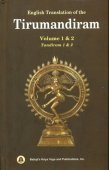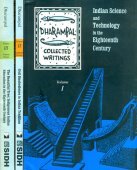Astonishment, Astonishing: 2 definitions
Introduction:
Astonishment means something in Hinduism, Sanskrit. If you want to know the exact meaning, history, etymology or English translation of this term then check out the descriptions on this page. Add your comment or reference to a book if you want to contribute to this summary article.
Images (photo gallery)
In Hinduism
Natyashastra (theatrics and dramaturgy)
Source: Shodhganga: Elements of Art and Architecture in the Trtiyakhanda of the Visnudharmottarapurana (natya)Astonishment (expressions) are associated with Udyuta: one of the “seven movements of the head” (in Sanskrit Dramas), as conveyed through Āṅgikābhinaya: one of the four divisions of Abhinaya or “ways to convey or represent one’s emotion to others”, according to the Nāṭyaśāstra and the Viṣṇudharmottarapurāṇa, an ancient Sanskrit text which (being encyclopedic in nature) deals with a variety of cultural topics such as arts, architecture, music, grammar and astronomy.—The āṅgikābhinaya includes the histrionic representation of the limbs which is simply known as physical gestures. In the Viṣṇudharmottarapurāṇa, seven types of movements of the head are recorded. Udyuta denotes slowly shaken head shows grief, astonishment etc.

Natyashastra (नाट्यशास्त्र, nāṭyaśāstra) refers to both the ancient Indian tradition (shastra) of performing arts, (natya—theatrics, drama, dance, music), as well as the name of a Sanskrit work dealing with these subjects. It also teaches the rules for composing Dramatic plays (nataka), construction and performance of Theater, and Poetic works (kavya).
Shaivism (Shaiva philosophy)
Source: ORA: Amanaska (king of all yogas): (Shaivism)Astonishment is denoted by the Sanskrit term Vismāpaka.—In his commentary to the Svacchandatantra (11.197), Kṣemarāja provides the following definition: “Kuhaka is that which causes astonishment (vismāpaka) and convinces those of limited understanding. It is chiefly magic”. In his commentary on the Netratantra (18.89), Kṣemarāja glosses kuhakāni as: “Deceitful (things) such as amulets of control, witches, etc.”. These glosses affirm that kuhaka can be understood more specifically to mean an astonishing, magical feat rather than its general sense of something that causes astonishment, the latter definition being that of Dhātupāṭha 10.443.

Shaiva (शैव, śaiva) or Shaivism (śaivism) represents a tradition of Hinduism worshiping Shiva as the supreme being. Closely related to Shaktism, Shaiva literature includes a range of scriptures, including Tantras, while the root of this tradition may be traced back to the ancient Vedas.
See also (Relevant definitions)
Full-text (+279): Vismaya, Ashcarya, Camatkara, Vismapana, Camatkarin, Camatkarana, Vismapaka, Kritavismaya, Smaya, Adbhuta, Citriyamana, Vismayamkara, Vismayamgama, Karamati, Cittacamatkara, Citravritti, Ashcharya, Abba, Vismayana, Sashcarya.
Relevant text
Search found 124 books and stories containing Astonishment, Astonishing; (plurals include: Astonishments, Astonishings). You can also click to the full overview containing English textual excerpts. Below are direct links for the most relevant articles:
Brihad Bhagavatamrita (commentary) (by Śrī Śrīmad Bhaktivedānta Nārāyana Gosvāmī Mahārāja)
Verse 2.4.97 < [Chapter 4 - Vaikuṇṭha (the spiritual world)]
Verse 1.3.51 < [Chapter 3 - Prapañcātīta (beyond the Material Plane)]
Verse 1.2.98 < [Chapter 2 - Divya (the celestial plane)]
Bhakti-rasamrta-sindhu (by Śrīla Rūpa Gosvāmī)
Verse 4.2.12 < [Part 2 - Astonishment (adbhuta-rasa)]
Verse 2.3.12 < [Part 3 - Involuntary Ecstatic Expressions (sattvika-bhāva)]
Verse 2.3.24 < [Part 3 - Involuntary Ecstatic Expressions (sattvika-bhāva)]
Sahitya-kaumudi by Baladeva Vidyabhushana (by Gaurapada Dāsa)
Text 5.13 < [Chapter 5 - Second-rate Poetry]
Text 5.1 < [Chapter 5 - Second-rate Poetry]
Text 5.16 < [Chapter 5 - Second-rate Poetry]
Shrimad Bhagavad-gita (by Narayana Gosvami)
Verse 11.14 < [Chapter 11 - Viśvarūpa-darśana-yoga (beholding the Lord’s Universal Form)]
Verses 11.10-11 < [Chapter 11 - Viśvarūpa-darśana-yoga (beholding the Lord’s Universal Form)]
Verse 18.76 < [Chapter 18 - Mokṣa-yoga (the Yoga of Liberation)]
The Religion and Philosophy of Tevaram (Thevaram) (by M. A. Dorai Rangaswamy)
Chapter 31 - Thirukoodalaiyathoor or Tirukkutalaiyarrur (Hymn 85) < [Volume 3.3 - Pilgrim’s progress: to Chola (later?)]
Introduction < [Volume 3.3 - Pilgrim’s progress: to Chola (later?)]
Chapter 37 - Thiruvazhkoliputhur or Tiruvalkoliputtur (Hymn 57) < [Volume 3.4 - Pilgrim’s progress: with Paravai]
Bhajana-Rahasya (by Srila Bhaktivinoda Thakura Mahasaya)
Related products




